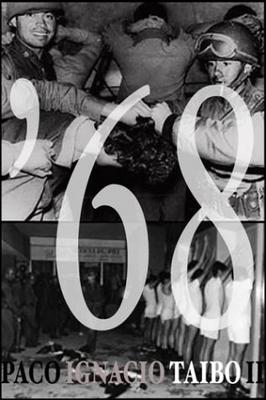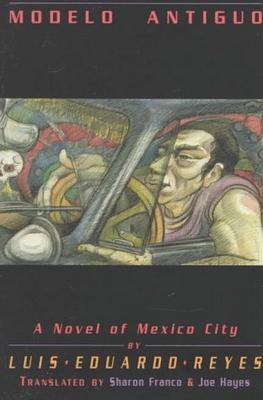'68 by Paco Ignacio Taibo II

In the fall of 1968, 325 students were massacred by the Mexican police in the public square of Tlatelolco during a protest. One person I know who was there remembers running, running and slipping on the blood of his fellow students – agruesome memory that will haunt him all his life. In ’68, Paco Ignacio Taibo documents the student movement leading up to the bloody massacre.
In 1968, I was only seven years old and living here in Gringolandia, but I remember Tlatelolco. I remember my grandparents hearing the news from family in Mexico and grabbing me out of the living room to stay quietly with my tia in her room. Such things weren’t meant for little girls to hear. Being an overly curious child, I snuck out and eavesdropped when I could. I heard my grandparents crying over the news that came in slowly. I know now that there was a news blackout for some time. I remember my mother and my uncle whispering about it and of people they knew in Mexico, wondering if those people were some of the dead. I remember bits and pieces but I remember Tlateloco. Reading ’68 brought those bits and pieces to the front of my memories and filled in what I didn’t know.
The student movement was at one time a half million strong and led to a 123-day strike in high schools and colleges throughout Mexico. Mr. Taibo was one of that student movement and writes from his memory of nights spent painting buses, printing flyers, guarding the school. He talks of madness, the quest for freedom, of brutal police beatings, the disappearance of bodies, of his own near arrest, of friends who disappeared into prisons and his own feelings of guilt for not being in Tlatelolco at the time of the massacre. He puts faces onto the students and talks of friends in the Moviemiento.
There are chapters so haunting and atrocious that it becomes hard to read but too important, too absorbing to put down. Each chapter is evocative, telling and passionate. The chapters have titles like “Of Women and Mattresses, The Sound of Marching Feet, Wherein We Learn the Tanks Have Arrive, Throwing Corncobs and Even Liars Know the Truth”.
It is a chilling and enlightening view of the things that went on behind the scenes, from the student’s point of view in the months and years leading up to the Massacre that some of us know so little of. The Mexican government covered up much of what happened and even now all these years later, information is not clear. Paco Ignacio Taibo II does much to uncover what remains hidden.
He asks, “Where did they throw our dead? Where did they toss our dead? Where, for fuck’s sake, did they throw our dead?” We should be asking the same.
Seven Stories Press has this title available in both English and Spanish along with other important books. Please visit and support this publisher.



